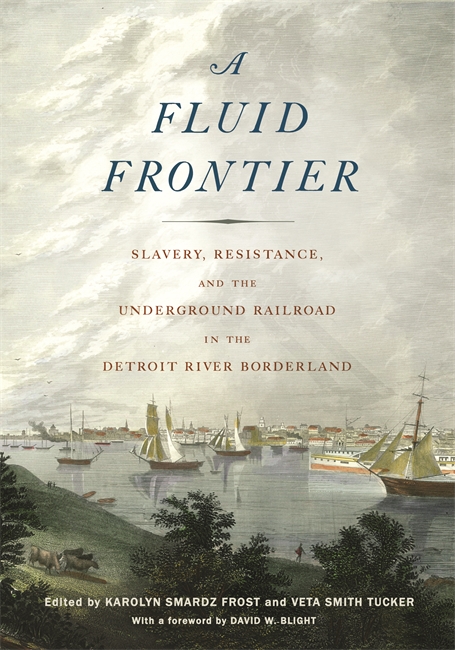A Fluid Frontier: Slavery, Resistance, and the Underground Railroad in the Detroit River Borderland

As the major gateway into British North America for travelers on the Underground Railroad, the U.S./Canadian border along the Detroit River was a boundary that determined whether thousands of enslaved people of African descent could reach a place of freedom and opportunity. In A Fluid Frontier: Slavery, Resistance, and the Underground Railroad in the Detroit River Borderland, editors Karolyn Smardz Frost and Veta Smith Tucker explore the experiences of the area’s freedom-seekers and advocates, both black and white, against the backdrop of the social forces—legal, political, social, religious, and economic—that shaped the meaning of race and management of slavery on both sides of the river.
Afua Cooper is a Professor in the Departments of Sociology and Social Anthropology at Dalhousie University, where she also holds cross appointments in History and Gender and Women Studies.
Other publications from this author include:
- Black Matters (2020)
- My Name Is Phillis Wheatley: A Story of Slavery and Freedom (2009)
- Acts of Resistance: Black Men and Women Engage Slavery in Upper Canada, 1793-1803 (2007)
- Multiple Lenses: Voices from the Diaspora located in Canada (2007)
- The Hanging Of Angelique: The Untold Story of Canadian Slavery and the Burning of Old Montreal (2007)
- Copper Woman and Other Poems (2006)
- THE UNDERGROUND RAILROAD: Next Stop, Toronto! (2002)
- Utterances and Incantations: Women, Poetry and Dub (1999)
- Memories Have Tongue: Poetry (1992)
- Red Caterpillar on College Street (1992)
- Breaking Chains (1983)
